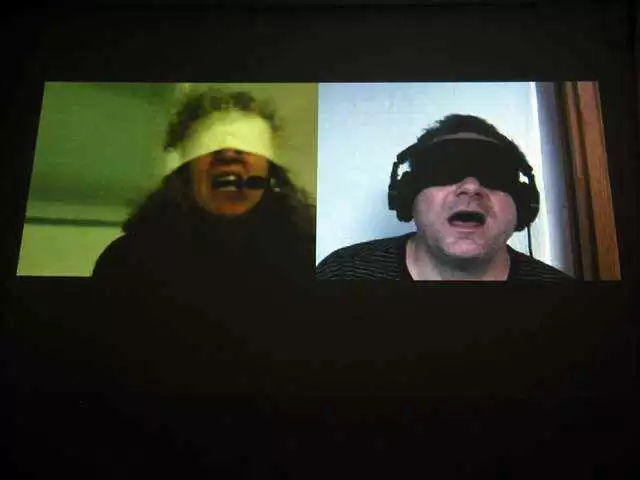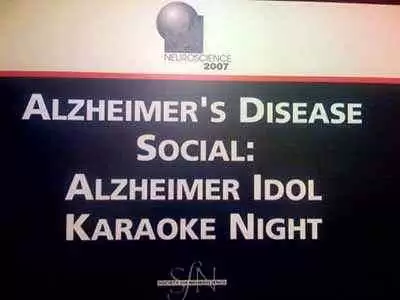
Celiac.com 12/21/2016 - I have previously criticized the use of a single blind test protocol for a gluten-free diet. In past issues of The Journal of Gluten Sensitivity I have also been critical of some double blind research protocols for investigating dietary variables for a variety of reasons not relevant to the current topic. However, there are good reasons that the double blind protocol continues to be favored, especially among medical researchers. Single blind testing is where the research subjects are not aware of the intervention being used whereas, in a double blind test, both the subjects and the researchers are kept in the dark about the intervention until the end of the trial. Sometimes that requires the use of placebos. In other protocols, it involves masking the intervention.
The primary merit of double blind, over single blind tests is that the former eliminates something called "confirmation bias". Single blind testing was first developed because patients' and other experimental subjects' expectations were thought to skew results. Under some circumstances, this problem is called a placebo effect. We can see the placebo effect in action when research subjects are split into two groups. One group is given the medical treatment or drug being investigated, while the other group is given a placebo. This placebo may be a sugar pill or some other substance or treatment that should have no significant or measurable medical impact on the subject. The placebo is given to subjects/patients as if it could provide medicinal properties. Because the patient expects to feel better with this placebo intervention, some subjects do start feeling better. That's the placebo effect. Single blind testing does reduce this problem.
Celiac.com Sponsor (A12):
Especially for drug treatments, blinding subjects does make sense. However, another confounding variable was soon recognized as arising from single blind tests. It turns out that, in addition to patients' reporting health benefits from sugar pills and other placebos, the physicians and other scientists were skewing the results in another fashion. This is where confirmation bias comes in. The term identifies a situation where researchers miss signs of a problem with gluten. (A fascinating book titled The Structure of Scientific Revolutions (1962), by Thomas Kuhn provides detailed explanations of this phenomenon in his descriptions of several experiments that clearly show this tendency.) To some extent we all have a tendency to confirm our expectations in what we see. This confirmation bias can have an impact on research results in two ways. First, it can lead researchers who are interacting with the test subjects to communicate, either through body language, or verbal "slips" to indicate that they expect a given patient to improve following the intervention or drug being investigated, leading to more of the placebo effect. It can also lead researchers to interpret their results in ways that confirm what they expected to see, rather than in a more objective light.
Placebo effect and confirmation bias can be nullified in a double blind study when researchers subtract the portion of the placebo group who are feeling better on the placebo from the number who report feeling better in the experimental group. (The experimental group is the group that was given the actual drug or medical treatment under investigation.) This simple arithmetic eliminates the number of people in the experimental group who were likely to report feeling better even though they were only given the placebo. The remaining number of experimental subjects who report feeling better after the medical intervention are thought to reflect the number of people who actually experience a benefit induced by the treatment.
My concern with physicians running single blind tests on patients who believe that they feel healthier on a gluten-free diet is that the physician is likely to see what she/he expects to see (confirmation bias). So skeptical physicians who would request that their patients do a gluten challenge in the form of a single blind test are most likely to see what they expect to see. This may be why more than 95% of people with celiac disease remain undiagnosed in the USA. Confirmation bias seems to afflict many physicians practicing in the USA. Judging from my years of exchanging correspondence with gluten sensitive people from all over the world, similar dynamics seem to be at work, to varying degrees, in many other countries as well.
A protocol that requires the patient to undergo a gluten challenge in a single blind test format is offensive in its implications. It denies the limitations of the very physicians who would be charged with conducting these tests, making observations, and treating patients accordingly. I sincerely believe that physicians are intelligent, hard-working individuals who have pursued a career that is dedicated to helping people. I also believe that they are equally fallible in their judgments and pre-conceived notions about others, especially when it comes to dietary interventions. If physicians cannot accept the observations of their patients, why should their patients be willing to accept their physicians' observations and conclusions? Who has more at stake in this relationship? And who is in a better position to observe even very subtle responses to gluten ingestion?
As a culture, we seem to have lost track of why we consult physicians. Although we are all subject to confirmation bias, most of us are not seeking insulting instructions that disparage our honesty, integrity and reliability. When I visit my family physician, I want her to act as my guide to the science she is familiar with, and render the best guidance she can offer based on her expertise and paying careful attention to what I report. If my problem is beyond her knowledge or experience, I expect to be referred to a specialist in my area of concern.
I usually consult her, on a collaborative level, when she has some relevant expertise that will compliment my own expertise. I can not foresee a set of circumstances in which I would allow her to conduct a single blind trial on me. I do not accept the premise that she is less susceptible to her confirmation bias than I am to the placebo effect. Thus, my expectation of my physician is that we work together to solve any health problems that arise. I must say that both my current physician, whom I have been seeing for the last five years, and my previous physician who worked with me for the previous eleven years, have consistently exceeded my expectations. In both cases, they seem very happy that I am trying to take responsibility for my own health care and that I consider their advice to be a resource rather than the final word in the matter. I'm very grateful for these relationships, as they, and the gluten-free, dairy-free, diet, along with reduced soy and refined sugar consumption, have helped me achieve a much better state of health than I previously considered possible.










Recommended Comments